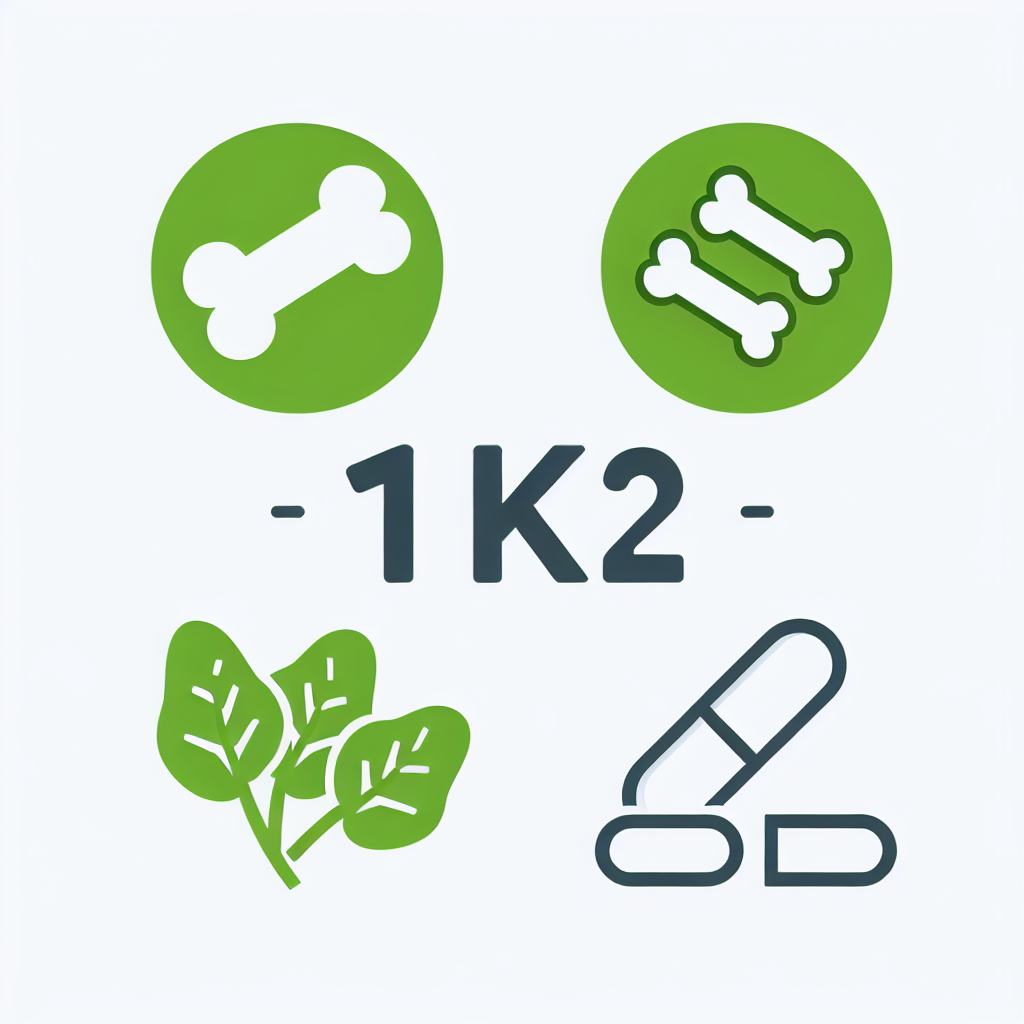Vitamin K2 may not have the spotlight like Vitamin D or Vitamin C, but its importance in keeping your body healthy is undeniable. This underrated nutrient is crucial for managing calcium—sending it to the right places to strengthen bones and teeth while keeping it out of your arteries where it could cause harm. Despite its relatively low profile, Vitamin K2 has shown incredible potential for bone and heart health. Are you reaping its benefits yet?
In this guide, we’ll cover everything you need to know about Vitamin K2, including its benefits, the best food sources, supplements, deficiency symptoms, and how to make it part of your daily routine. Let’s dive in!
What Is Vitamin K2?
Unpacking Vitamin K2
Vitamin K2 is part of the Vitamin K family, which plays a vital role in your body’s calcium regulation and blood clotting. While Vitamin K1 focuses on helping blood coagulate properly, Vitamin K2 specializes in making sure calcium is distributed to the right places—like your bones—while preventing it from settling in places it shouldn’t, including arteries or organs.
The Two Key Forms: MK-4 and MK-7
Vitamin K2 comes in multiple forms, but MK-4 and MK-7 are the most notable. MK-4, found in foods like butter and organ meats, has a shorter half-life and stays in your system for less time. MK-7, found in fermented foods like natto, has a longer-lasting effect, making it the preferred choice for many supplements.
If you’re trying to decide between MK-4 and MK-7, consider your dietary habits. If you’re already consuming animal-based foods, MK-4 might feel more natural. But if you’re looking for a long-lasting, convenient supplement, MK-7 is an excellent choice.
Why You Need Vitamin K2
1. Strengthens Your Bones
Ever wonder why calcium alone isn’t always enough for strong bones? Vitamin K2 activates a protein called osteocalcin, which binds calcium to your bone matrix, making your skeleton stronger. Studies have shown that diets rich in Vitamin K2 improve bone density and reduce fracture risks. This makes it particularly valuable for aging individuals or anyone at risk of osteoporosis.
2. Protects Your Heart
Vitamin K2 is essential for cardiovascular health. By regulating calcium, it prevents plaque buildup in the arteries—a condition known as arterial calcification. This helps protect against heart disease and maintains arterial elasticity. Many studies have linked higher Vitamin K2 intake to healthier arteries and significantly reduced risks of heart attacks.
3. Other Emerging Benefits
Beyond bones and heart health, Vitamin K2 is being studied for several promising benefits:
- Dental Health: Remineralizes teeth and strengthens enamel.
- Cognitive Function: Potential role in reducing age-related cognitive decline.
- Blood Sugar Control: May improve insulin sensitivity, helping combat diabetes.
Though research on these additional effects is still ongoing, the findings suggest Vitamin K2 could be useful for a range of health concerns.
Where to Find Vitamin K2
Top Vitamin K2 Food Sources
Vitamin K2 isn’t as readily available as other vitamins, but it can be found in some nutrient-dense foods:
- Natto: This fermented soybean dish is the richest source of MK-7. While its sticky texture and earthy flavor might be an acquired taste, natto is unmatched for its Vitamin K2 content.
- Egg Yolks and Butter: These animal-based foods contain MK-4, making them readily accessible for most diets.
- Cheese: Especially aged cheeses like gouda and parmesan, which contain notable amounts of Vitamin K2.
- Organ Meats: Liver from poultry or beef contains MK-4 and is a nutrient powerhouse.
- Fermented Foods: Options like sauerkraut and miso provide modest amounts of Vitamin K2.
When Supplements Make Sense
If your diet doesn’t include many Vitamin K2-rich foods, supplements are a smart alternative. Most supplements feature MK-7 due to its longer-lasting effects. Pairing Vitamin K2 supplements with Vitamin D3 can amplify their benefits since Vitamin D3 improves calcium absorption.
Look for high-quality options, preferably ones that specify the type of K2 (MK-4 or MK-7) and feature third-party verification for purity and potency.
How to Choose the Best Vitamin K2 Supplement
MK-4 vs MK-7: The Breakdown
Choosing between MK-4 and MK-7 comes down to your lifestyle and goals. MK-7 shines for its once-a-day convenience and prolonged effects. MK-4, on the other hand, may be better if your diet already includes animal-based sources packed with MK-4.
Dosage Recommendations
Most adults benefit from 100–200 mcg of Vitamin K2 daily as a maintenance dose. If you’re targeting specific issues, like weak bones or arterial plaque, higher doses may be recommended by your healthcare provider.
Safety Considerations
Vitamin K2 is generally safe. However, those taking blood-thinning medications (like warfarin) should consult their doctor before supplementing with K2, as it may interfere with clotting mechanisms.
Symptoms of Vitamin K2 Deficiency
Vitamin K2 deficiency, though uncommon, can lead to serious health concerns. Watch out for these warning signs:
- Bone Pain or Weakness: Low bone density or frequent fractures.
- Heart Health Issues: Signs of arterial stiffness or cardiovascular discomfort.
- Dental Problems: Increased cavities or weakened enamel.
If you suspect you’re deficient, incorporating K2-rich foods or supplements is an effective way to regain balance.
Wrapping It Up
Vitamin K2 might not be as well-known as other nutrients, but its contributions to your health are substantial. From building stronger bones to protecting your heart, it’s a powerful addition to any wellness strategy. Whether you integrate K2-rich foods like eggs and natto into your meals or opt for a reliable supplement, boosting your intake can improve your overall quality of life.
Next time you’re planning your health goals, consider making Vitamin K2 part of your approach. Your bones, heart, and teeth will thank you.
Start small: take a Vitamin K2 supplement or add some aged cheese to your diet today. It could be the missing component your body has been craving.
